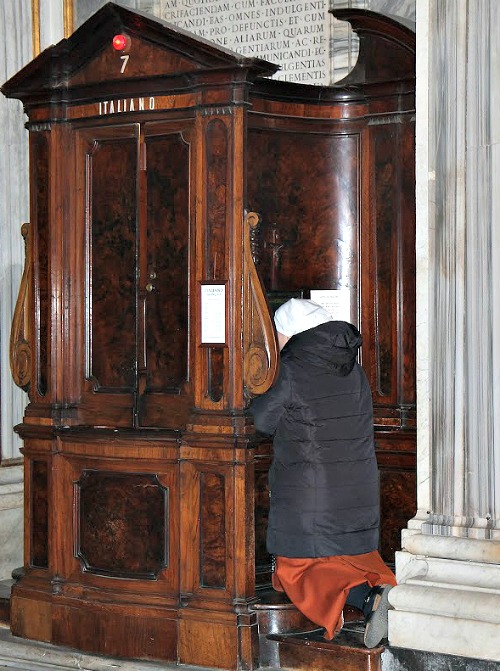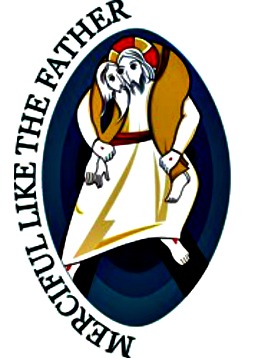Will Year of Mercy Offer New ‘Opening’ on Abortion?
NEWS ANALYSIS: Many pro-lifers believe that Pope Francis’ initiative will have far-reaching effects on women and men marred by the culture of death.

BOSTON — After news headlines marked a Year of Mercy initiative to grant absolution for the sin of abortion, the Project Rachel hotline for the Archdiocese of Boston rang off the hook.
“Those who received absolution in the ’70s wondered if it was valid. Others were overwhelmed with joy that they could be forgiven,” said Marianne Luthin, director of the Archdiocese of Boston’s Pro-Life Office and its Project Rachel ministry, as she recalled the powerful reaction to the papal letter released on Sept. 1.
“Many women had no idea that an abortion was an excommunicable offense, and the news was not reported correctly in the secular media, so that added to the confusion.”
The surge of interest registered a mix of anxiety and relief, but one point was not in doubt: “The Pope really touched many hearts and souls,” Luthin told the Register.
“Women said they felt comfortable coming forward because they trusted the Pope. They had been living in the shadows; and now they felt they could receive absolution.”
Four decades after the U.S. Supreme Court legalized abortion on demand in its Roe v. Wade and Doe v. Bolton decisions, Catholics who have labored in the trenches of the pro-live movement believe that Pope Francis has forged a new opening to millions of Catholic women who have often lived with the deep wounds inflicted by abortion for years.

Many people have dismissed “the extreme harm that follows a decision to procure an abortion,” the Pope noted in his letter.
But others “bear in their hearts the scar of this agonizing and painful decision. What has happened is profoundly unjust; yet only understanding the truth of it can enable one not to lose hope.
“The forgiveness of God cannot be denied to one who has repented, especially when that person approaches the sacrament of confession with a sincere heart in order to obtain reconciliation with the Father.”
His striking testimony to the merciful love of God was widely reported on the news and on social media, sparking a sharp surge of calls to dioceses and Project Rachel offices.
“If women think the Catholic Church only condemns them, why approach it?” Maria Maffucci, editor of The Human Life Review, told the Register. “But if they hear that, yes, it is a grave sin, but it can be forgiven and we love you, maybe there is an opening.”
This fresh opportunity, she added, comes as Americans continue to reassess the morality of legal abortion; but the Pope has extended his invitation without provoking the usual static from partisan groups that back abortion rights.
At one time, the women’s movement embraced Roe as the key to gender equality. But then came ultrasound technology and a dawning awareness that abortion involved much more than a woman’s choice.
Maffucci pointed to a recent comment posted on The Human Life Review’s website that recalled the horror of a coerced abortion endured decades earlier when the writer was just 16 years old.
“I’m now 55 and always wonder what if. My child would be 37 now, and all I have are memories of that horrible day. … No pictures, but the mind plays it back like yesterday,” read the comment.
Such stories, said Maffucci, help illustrate that Pope Francis has tapped into a deep well of pain and a yearning for forgiveness.
In his Sept.1 letter, Pope Francis said he would offer “all priests for the jubilee year the discretion to absolve of the sin of abortion those who have procured it and who, with contrite heart, seek forgiveness for it.”
The news stirred confusion in the United States because most bishops have already delegated to their priests the power to absolve the sin of abortion.
Further, as the procurement of an abortion is also a canonical crime, which incurs the juridical penalty of automatic excommunication, U.S. priests also have been given the authority to remit the penalty when they hear the confession. But this has not been the case universally in the world; thus, the papal proclamation for this special year.
Four months later, most of the confusion has been cleared up, and Catholics who left the Church because of their involvement with an abortion are getting the message that “what some people feel is the ‘unforgiveable sin’ is forgivable: There are no limits to Christ’s mercy,” explained Mary McClusky, the assistant director of Project Rachel ministry development at the U.S. Conference of Catholic Bishops (USCCB).
As the Pope’s words prompt more women to look for help on the web, a USCCB-linked website guides visitors to local Project Rachel offices that provide counseling and retreats.
The invitation to experience God’s mercy is extended to all of the faithful. But for those on the margins, it can serve as a vital first step toward an eventual return to Sunday Mass and parish life, said McClusky.
“Absolution for abortion is part of the Church’s broader message, which is Christ and the healing he provides,” she told the Register, noting that local bishops have encouraged collaboration across ministries to deepen the impact.
“Post-abortion healing provides a bridge to marriage and family ministries and evangelization,” she added.
Following Pope Francis’s lead, U.S. dioceses are opening the doors of mercy in local churches and launching “24 Hours for the Lord,” an initiative that offers confession and Eucharistic adoration, March 4-5, 2016.
In his letter, the Pope emphasized the need for priests, in the confessional, to “fulfill this great task by expressing words of genuine welcome, combined with a reflection that explains the gravity of the sin committed, besides indicating a path of authentic conversion by which to obtain the true and generous forgiveness of the Father, who renews all with his presence.”
That tender message from Rome has been welcomed in the Diocese of Dallas, which sponsors Rachel’s Vineyard retreats for men and women, a Project Rachel-based referral system and an annual one-day Project Joseph retreat for men that is offered in both Spanish and English.
“I was delighted to hear the words offered by Pope Francis to an aching world so much in need of this healing,” Eileen Kuhlmann, who directs Abortion After-Care Healing/The Rachel Ministries for the Diocese of Dallas, told the Register.
Kuhlmann is eager to spread the word about the diocese’s Project Joseph retreats, which began in 2014 to draw men who are struggling to deal with their own involvement in an abortion, whether they may have pressured a girlfriend or spouse to go through with it or failed to stop it.
The burden of moral responsibility may vary, said Kuhlmann, but men who deeply regret the actions they did or did not take during a crisis pregnancy also need to hear the Pope’s message of forgiveness.
In Boston, Marianne Luthin has already witnessed a powerful response to the Pope’s initiative, as she counsels women who have nursed their guilt for years and now feel the stirrings of hope and the beginning of healing.
Some have returned to confession multiple times to seek absolution but did not believe they were worthy of forgiveness. Others have been away from the sacraments for so long that they no longer remember how to make a good confession, and Luthin offers guidance.
The “24 Hours for the Lord,” she said, “will give these women an opportunity to receive the sacrament of reconciliation without having to go to their local priest.”
Her office is coordinating with other archdiocesan departments to update training for priests and help them “understand the unique situation facing women, as well as the numbers involved. Almost one out of every three women has had an abortion in the U.S., with the numbers almost the same for Catholics.”
Before Advent, Cardinal Sean O’Malley of Boston served as the chief celebrant at a Mass that highlighted the work of Project Rachel. And during the Year of Mercy, Luthin will coordinate presentations in parishes to spread the word about this ministry and help the faithful understand how abortion upends so many lives.
Indeed, as women take part in Project Rachel retreats and begin to heal, it is not uncommon for family members to take part in this difficult process, especially when parents realize that their daughters endured an abortion to protect them from public embarrassment.
Each person, Luthin concluded “needs to acknowledge their faith and trust in God’s mercy.
“This is not something we earn. This is what God wants for us: to know we are loved, even when we do terrible awful things. It is the will of God to offer healing and reconciliation, and there is no such thing as an ‘unforgiveable sin.’”
Joan Frawley Desmond is the Register’s senior editor.
- Keywords:
- abortion
- cardinal sean o'malley
- confession
- joan frawley desmond
- project rachel
- rachel's vineyard
- year of mercy
















